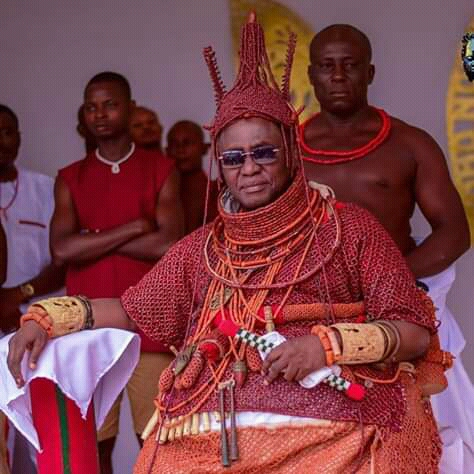The Oba of Benin is one of the most prominent traditional rulers in Nigeria and a symbol of cultural heritage in Africa. The title “Oba” is the traditional designation for the king of the Benin Kingdom, located in present-day Edo State, Nigeria. The Oba of Benin is not just a ceremonial figure; he plays a vital role in the cultural and spiritual life of the Edo people and holds immense historical significance.
Historical Background
The Benin Kingdom dates back over 1,000 years, with its foundation often traced to around 900 AD. The monarchy gained prominence in the 13th century when the Ogiso dynasty (earlier rulers) was replaced by the Oba system, beginning with Oba Eweka I, who is considered the first Oba in the current lineage.
- The system became more centralized and powerful under Oba Ewuare the Great (ruled circa 1440–1473), who expanded the kingdom’s territory and established many traditions that continue today.
- The Benin Empire became one of the most advanced pre-colonial African empires, known for its bronze artworks, complex urban planning, and military organization.
Role of the Oba
The Oba is:
- The spiritual leader of the Edo people.
- A custodian of tradition, culture, and heritage.
- An adjudicator in traditional matters.
- The symbol of unity for the Edo people both at home and in the diaspora.
He is revered almost as a deity and is rarely seen in public without full regalia and ceremony.
Succession & Royal Lineage
- Succession is hereditary, typically from father to son or to the next most eligible male in the royal family.
- The process involves a detailed selection ritual, performed by Uzama N’Ihinron (a group of kingmakers).
- The crown prince is known as the Edaiken of Uselu before coronation.
Current Oba: Oba Ewuare II
- Full Name: Eheneden Erediauwa
- Title: His Royal Majesty, Omo N’Oba N’Edo Uku Akpolokpolo Oba Ewuare II
- Coronated: October 20, 2016
- Predecessor: Oba Erediauwa (his father)
- Background: Former diplomat (served as Nigeria’s ambassador to Sweden, Angola, and Italy)
Benin Royal Palace
- Located in Benin City, the palace is a UNESCO World Heritage Site (tentative list).
- It’s a major cultural, spiritual, and historical center in Nigeria.
- Houses royal artifacts, sacred shrines, and royal court officials.
Benin Bronzes and Art
- The Oba’s court commissioned thousands of intricate bronze, ivory, and wood artworks.
- Many of these were looted by British forces in 1897 during the punitive expedition.
- Some are now being returned by Western museums and institutions.
Modern Influence
Though the Oba has no formal political power under the Nigerian constitution, his influence in:
- Cultural preservation
- Community leadership
- Conflict resolution
- Advocacy for the return of Benin artifacts
…remains extremely powerful.
Fun Facts:
- The Oba is rarely addressed directly and is often referred to with praises and titles like “Omo N’Oba”, meaning “Son of the King.”
- The Oba is considered divine—his word is law within traditional Benin society.
- His appearance is marked by coral beads, symbolic regalia, and specific rituals.


